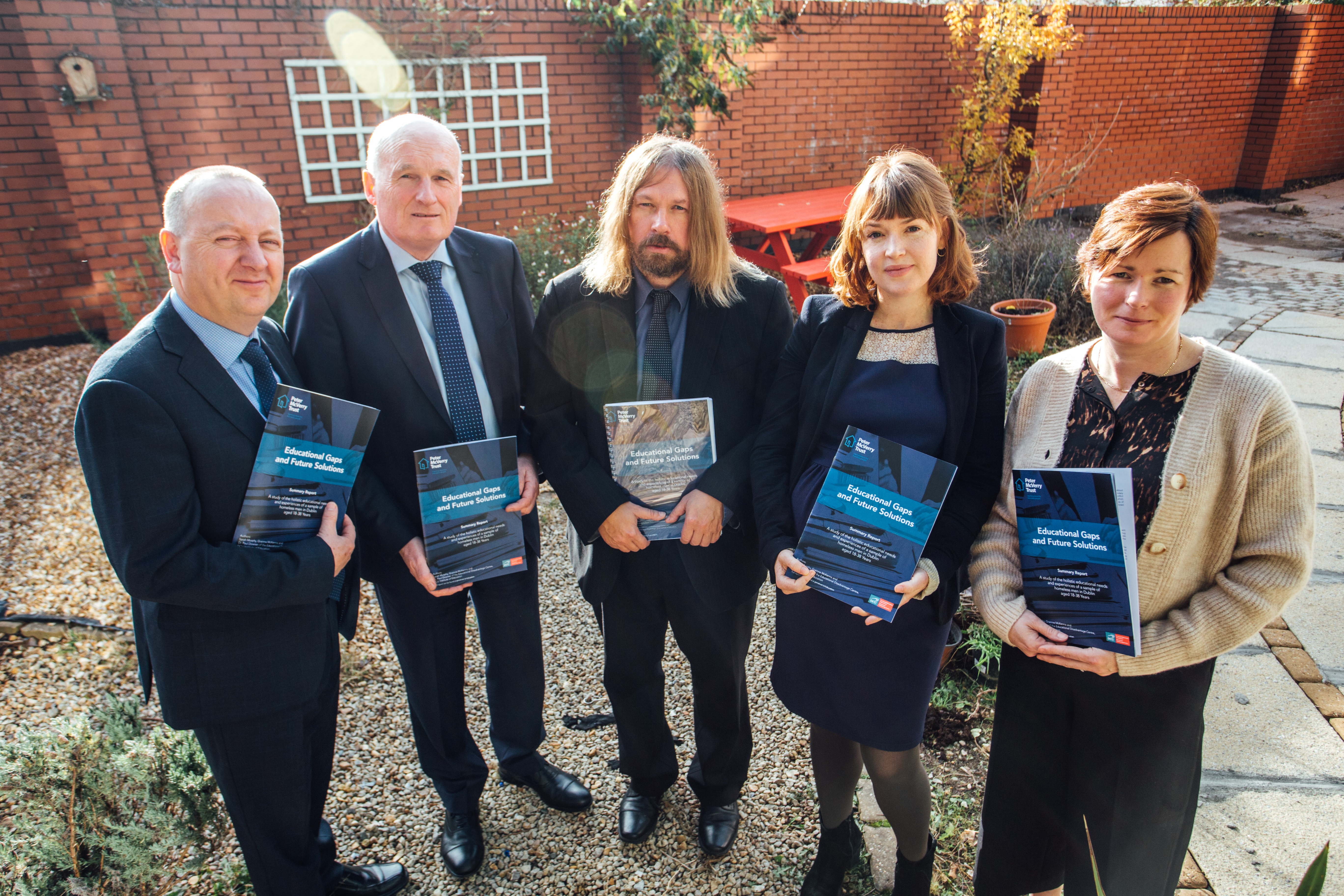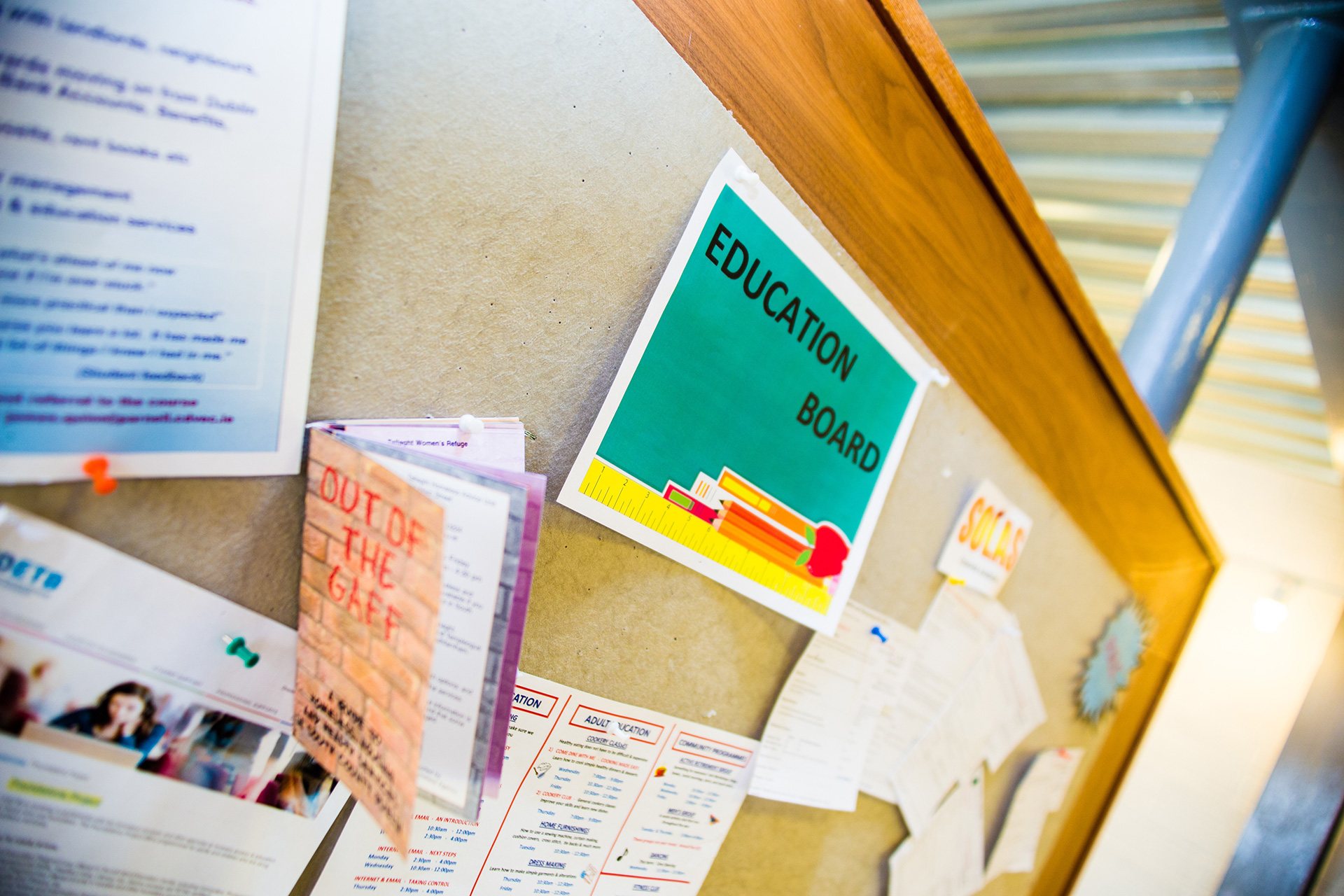On Wednesday, November 6th 2019, Peter McVerry Trust in partnership with DCU launched a major research report – Educational Gaps and Future Solutions – which found a widespread need for reforms and additional support for vulnerable young people in the education system.
Central to the delivery of this research was Peter McVerry Trust’s Head of Services, Liz Peña, who coordinated the 171 young men, aged 18-38, that formed the group from which this research was drawn. In this piece, she speaks about the importance of this report in terms of preventing homelessness.
Q. What makes this report so critical?
“It’s critical in that it’s telling us what we knew intuitively and from on the ground experience in our services by listening to the needs of our participant group. To bring that together in a research format, draw out the experiences of the participants in our services and, as you can see [the recommendations] would be very much built on the experiences given to us through the interviews, questionnaires and the research itself.”
“It’s responding to what they [the participants] have identified as their needs and their experiences, and it gives a voice to participants in our services from which we can now advocate and push on to a more national-level strategy.”
Q. For people who aren’t aware, what would you say the unique challenges that participants in this research face in education?
“Their experience in education has been so fractured that the fact 79% of them what to return to education is so heartening. The challenge they face, though, is how they can successfully re-access education in the context of being homeless.”
“Ideally, people progress on from homeless services into accommodation of their own and their own tenancies, but it’s how to initiate that step back into education and then for that to be given ongoing support so that we have an educational system for all ages that allows for people to complete their education.”
Q. What is Peter McVerry Trust currently doing to help individuals in our services back into education?
“Every person accessing Peter McVerry Trust’s services is assigned a key worker. Education and training needs is a key facet of any support plan done in collaboration with participants. In every service, our participants are supported to look at the options available and to access those.”
“On top of that, we also have our own initiatives in place. In the last year we have rolled out NALA (National Adult Literacy Agency) training across all of our services with key staff in services trained up as NALA facilitators.”
“As an organisation, we also have key education initiatives. We have funding in some schools across Dublin to support the prevention of early school leaving, so those schools can access these funds to provide emotional support or more intensive support for those who are struggling in the school environment.”
“We are also developing CE schemes and back-to-work initiative across all of our services. We have an education project in Moyross in Limerick and we have the Carline Centre which is supported by Peter McVerry Trust – that works specifically with young people in the Junior Cert cycle who are out of school, to support them in a non-formal school environment to complete their Junior Cert.
Q. In what ways, do you think, this report will help inform the services Peter Mcverry Trust delivers in future?
“I think it’s part of continuing what we’re doing. It’s to enhance and increase the impetus we have in terms of recognising that education and training is a key facet of all of our lives.”
“[This report] ensures we are keeping education as a focus in terms of people accessing our services, that education and training will create stability across the lifespan of people leaving homelessness and reintegrating back into the community.”
Q. What was it like to DCU on this report?
“Fantastic. A great learning experience for ourselves and great to have their knowledge and their experience behind it. We used their skills to help us in the methodology of how we rolled out the research itself – we used that as an opportunity to engage our staff across the services, to actually be involved in the research.”
“[We also] supported the individuals in completing their questionnaires as needed, providing support in services for people who might bring up some thoughts, re-visiting their experiences and to have some of the Peter McVerry Trust staff to support them.”
“[It was] not a once-off event of, “you’ve done this questionnaire, thank you”. Instead it is, “you’ve done this questionnaire, now let us use this as an opportunity to look and explore other options for yourself”.”
Q. Do you think it has increased research capacity within Peter McVerry Trust?
“I think so and our awareness across the organisation. Although it’s always there, we’re always training staff on capacity and building around that as part and parcel of project working in the services we provide. But it is another layer of awareness and depth to what we’re doing in terms of service provision.”
Read the summary of the new report here.
For the full report, click here.



